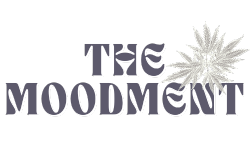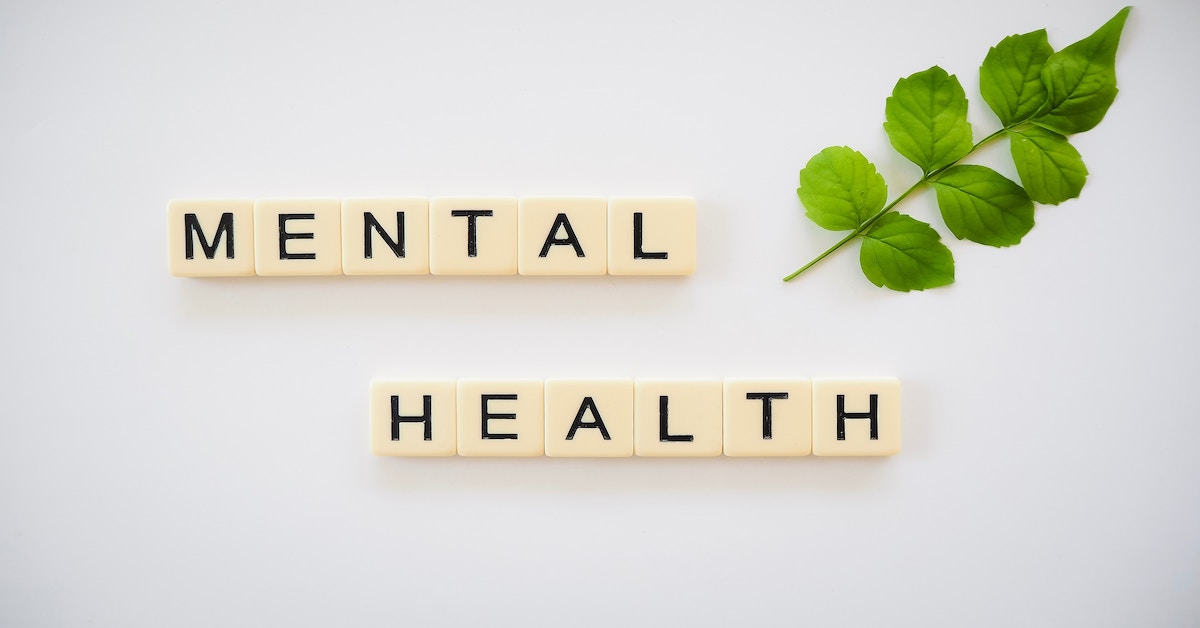
Natural Remedies for Anxiety and Depression
According to the Centers for Disease Control and Prevention, more than 1 in 5 U.S. adults live with a mental illness. When it comes to more serious mental illness conditions like schizophrenia, bipolar disorder, and major depression — about 1 in 25 people in the U.S. suffer. Mental illness is a major epidemic in this country, but luckily, there are many natural remedies for anxiety and depression.
Before we dive into the world of natural remedies for anxiety and depression to help provide you with some mental health relief, let’s review some facts about mental health.
Mental health at a glance
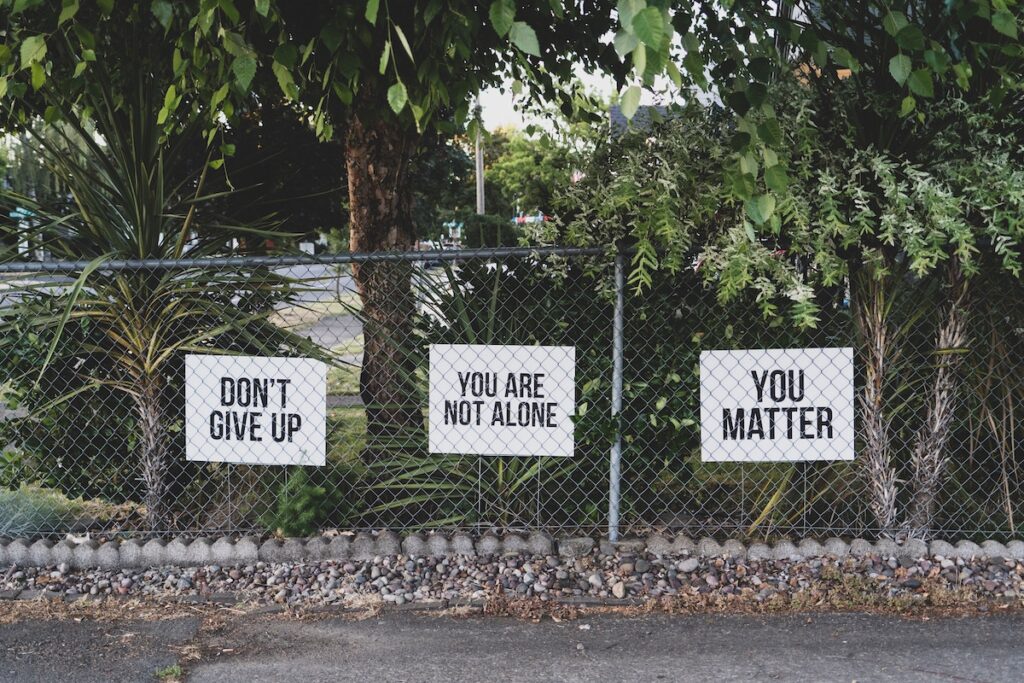
The Substance Abuse and Mental Health Services Administration says, “Mental health includes our emotional, psychological, and social well-being. It affects how we think, feel, and act, and helps determine how we handle stress, relate to others, and make choices.”
It’s critical to note — both mental and physical health are equally important components of overall health. While some people may say mental illness and physical illness stand alone, they don’t. For example, “depression increases the risk for many types of physical health problems, particularly long-lasting conditions like diabetes, heart disease, and stroke.”
Additionally, it’s important to keep in mind that a person’s mental health can change over time.
What causes mental illness?
There isn’t a sole cause for mental illness. And for everyone dealing with mental illness, causes and triggers can widely range. Per the CDC, here are the most common causes of mental illness:
- Adverse Childhood Experiences, such as trauma or a history of abuse (for example, child abuse, sexual assault, witnessing violence, etc.)
- Experiences related to other ongoing (chronic) medical conditions, such as cancer or diabetes
- Biological factors or chemical imbalances in the brain
- Use of alcohol or drugs
- Having feelings of loneliness or isolation
Of course, these causes are just the tip of the iceberg.
What can mental illness look like?
Whether you’re dealing with mental illness yourself or know a friend or family member going through their own mental health journey, there are many symptoms and signs of mental illness. According to the Substance Abuse and Mental Health Services Administration, experiencing one or more of the following symptoms or feelings can flag potential mental illness problems:
- Eating or sleeping too much or too little
- Pulling away from people and usual activities
- Having low or no energy
- Feeling numb or as if nothing matters
- Having unexplained aches and pains
- Feeling helpless or hopeless
- Smoking, drinking, or using drugs more than usual
- Feeling unusually confused, forgetful, on edge, angry, upset, worried, or scared
- Yelling or fighting with family and friends
- Experiencing severe mood swings that cause problems in relationships
- Having persistent thoughts and memories you can’t get out of your head
- Hearing voices or believing things that are not true
- Thinking of harming yourself or others
- Inability to perform daily tasks like taking care of your kids or getting to work or school
Also, remember — these symptoms aren’t a one-size-fits-all kind of way to diagnose mental illness. For each human, their own mental health journey is unique.
Now that you’re fully equipped with a factual mental health foundation of knowledge. Take a look at all the natural remedies for anxiety and depression that can help you along your own mental health journey:
Anxiety and Depression 101

If you didn’t know, the Diagnostic and Statistical Manual of Mental Disorders, Fifth Edition, is the taxonomic and diagnostic tool published by the American Psychiatrist Association. And according to the DSM-5, anxiety’s most common symptoms include:
- Difficulty concentrating and racing thoughts
- Fatigue
- Hyper-vigilance
- Insomnia and other sleeping issues
- Irritability
- Irritability
- Restlessness
Differing from anxiety-based symptoms, here is what the DSM-5 highlights as depression symptoms (lasting for two or more weeks): - Diminished interest in most activities nearly every day
- Extended periods of depressed mood nearly every day
- Fatigue or loss of energy
- Feelings of worthlessness or excessive guilt
- Inability to concentrate or make decisions
- Recurrent suicidal thoughts, planning, or attempted suicide
- Significant increase or decrease in appetite leading to weight loss or weight gain
Depression may begin in the brain, but it can be powerful enough to cause a wide host of physical symptoms. Sleep problems are a common one — some people with depression never feel fully rested at night or fully awake during the day. They may experience so much fatigue that even the smallest tasks start to feel insurmountable.
Since depression has various potential causes, making identifying the right treatment plan is hard. However, for some people, environmental changes (getting more sunlight, eating right, etc) are enough to alleviate depression. Additionally, for many others though, a more intensive approach to depression treatment is needed.
Natural remedies for anxiety and depression
Because the causes of anxiety and depression are so complex, working with natural remedies for anxiety and depression — holistic solutions — are often the best solutions. Whether you’re using CBD, Delta-8 THC, 5-HTP, or L-theanine, each can offer relief in different ways. Dive into these natural remedies:
CBD
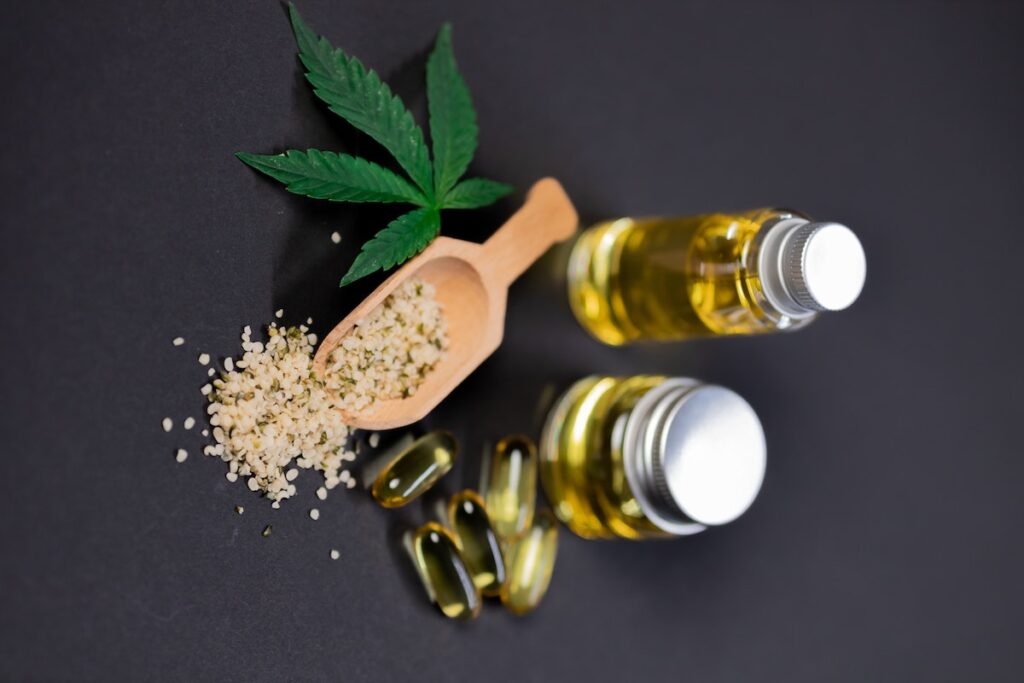
Studies show that CBD may alleviate anxiety by addressing the neurotransmitter imbalances that might be causing it. And though we can’t make any definitive health claims, we’re confident that CBD is one of the most effective, most natural things you can take for your mental health. After reading this article, we think you’ll be confident of that, too!
CBD’s calming effects are one of the first things most people notice when initially taking CBD oil — whether they have anxiety or not. Usually, this calmness happens alongside a subtle shift in one’s sense of well-being.
Some people feel more hopeful about the future; others feel freer to enjoy the present moment. It may even seem like reality has shifted just a little bit. And sometimes, all we need is a little perspective shift.
While this might sound pretty mystical, it’s not. And keep in mind we’re not talking about CBD making anyone high — it definitely doesn’t do that.
However, the way CBD boosts one’s calmness is interesting. One thing present in most cases of anxiety is the imbalanced serotonin: dopamine ratio, one where serotonin is too low. Impacting serotonin the way that traditional antidepressants do usually comes with some side effects.
Most of the brain’s serotonin receptors are considered psychedelic, so hitting them with a new chemical messenger (in this case CBD) produces all sorts of weird mental side effects. Just look at SSRIs — selective serotonin reuptake inhibitors. They don’t always work, and they aren’t always predictable.
Amazingly, CBD manages to hit the right receptors without doing any of this. It actually encourages a certain type of serotonin receptor, the 5-HT1A variety, to join forces with other receptors. These other receptors? They’re the endocannabinoid system’s CB2 receptors, and when this bond is formed it allows one’s mood to be lifted without any psychoactive stuff going on.
What to know about CBD and gut health
And while it’s well known that serotonin is critical to mood, it’s less well known that this important neurotransmitter is produced mostly in the gut, not in the brain. It’s there that immune cells and gut microbes help convert the amino acid tryptophan into serotonin’s active form.
If this process doesn’t go smoothly, it begins to show up in the body. Low serotonin in the GI tract has been linked to IBS, cardiovascular issues, and even osteoporosis. Once you take time to appreciate the gut-brain connection, it’s no wonder that IBS and anxiety tend to go hand in hand.
Thankfully, CBD may improve gut health through several different mechanisms. It improves what’s called intestinal motility, meaning it helps the intestinal tract keep the good stuff in and the bad stuff out. This trait is especially promising to those with leaky gut or Celiac disease, but truly — it’s a general health plus for nearly anyone.
These improvements in gut health tend to impact different people in different ways. For example, some lead to increased immune strength; for others less inflammation; for others, reduced allergies. Also, for those with anxiety, this improvement in gut health likely helps boost serotonin, too.
To summarize, CBD may improve one’s mood both directly (via changing serotonin receptors) and indirectly (via improved gut health). Pretty impressive, right?
5-HTP
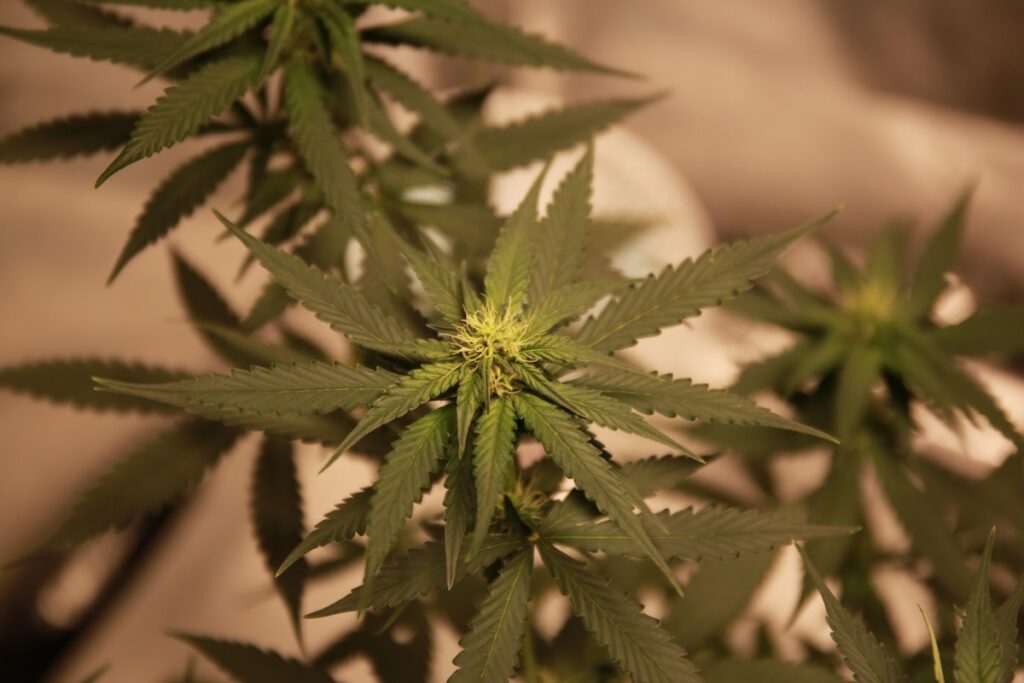
New to 5-HTP? Here’s what you need to know: 5-HTP (5-hydroxytryptophan) is a naturally occurring substance. 5-HTP is a precursor to serotonin, a vital neurotransmitter in the body. Serotonin is one of the primary neurotransmitters which supports healthy mood, appetite, and sleep.
One study put the effects of this serotonin substitution simply: “5-HTP has definitely got an antidepressant effect in patients of depression. Antidepressant effect was seen within 2 weeks of treatment and was apparent in all degrees of depression. The therapeutic efficacy of l-5-HTP was considered equal to that of fluoxetine.”
We get our premium 5-HTP blend by extracting it from the seeds of the Griffonia simplicifolia plant.
L-theanine
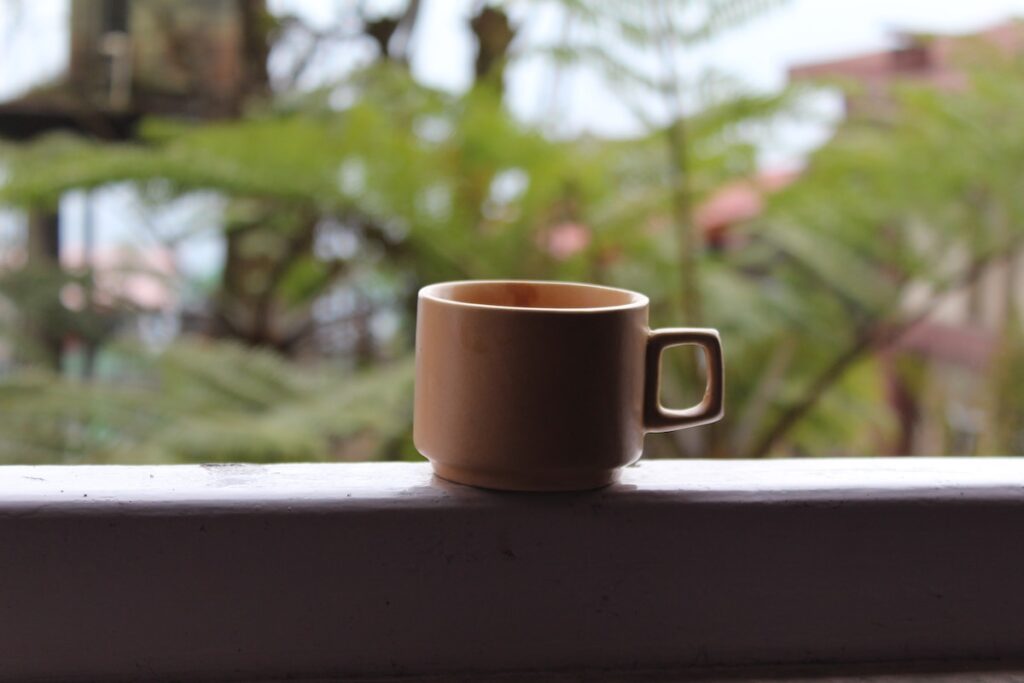
L-theanine is an amino acid found — you guessed it — only in tea.
Unlike the amino acids, most of us eat way too much of (think the methionine found in muscle meats), this amino acid is deeply relaxing. It prevents your nervous system from working too fast on the most basic molecular level.
L-Theanine has also been found to stimulate the production of alpha waves in the brain, which may help create desirable soothing effects. Studies have shown that it may help as one of the best natural remedies for anxiety and depression based on these potential benefits include:
- Healthy relaxation without drowsiness
- Healthy mental clarity and focus
Check out our L-theanine product here.
It’s YOUR mental health journey
Mental health is tricky. You can feel your best, while simultaneously remaining cognizant of potential high-anxiety situations or uncomfortable sadness right around the corner. To make sure you feel your best, holistically, I recommend doing daily physical and mental check-ins with yourself. If things feel good, keep on keepin’ on. If things feel like they could get better, find what works for you to keep you on track. Personally, for me, natural remedies for anxiety and depression keep my mental health routine in check regularly.
Whether you’re looking to reduce anxiety or depression symptoms or you’re looking to pepper in more natural medicines into your mental health routine, plenty of resources and recommendations exist.
